Ripley Netflix Review: Surprises And Satisfies All Those Who Have Long Been Looking For A Faithful And Fascinating Adaptation
Cast: Andrew Scott, Johnny Flynn, Dakota Fanning, Margherita Buy, Maurizio Lombardi
Created By: Steven Zaillian
Streaming Platform: Netflix
Filmyhype.com Ratings: 4/5 (four stars)
We reviewed Ripley, a Netflix miniseries with Andrew Scott on the streaming platform from Thursday 4 April. Imagine going back in time, to the Italy of the 60s and reliving all the charm of a refined, dreamy era of which there is almost no trace left in the contemporary world. Imagine diving back in time to that Italy where wealth and poverty split the country in half, where everyone had a Fiat, and where shopping was still done in small shops. Italy in which news could only be discovered by buying newspapers at the local newsstand, where to call you had to dial numbers on the telephone by going back and forth with your index finger, and where the trains still had berths so you could sleep during the trips. An Italy that smelled of music, typewriters, and handwritten letters. Ripley, the new Netflix thriller miniseries inspired by the novel The Talented Mr. Ripley by Patricia Highsmith, already adapted to the cinema in 1999 with the film by Anthony Minghella, will take you on this enchanting journey into an Italy of other times, accompanying you through inside a story with thriller tones and a very refined aesthetic, curated to perfection by Steven Zaillian, director and screenwriter of the series.
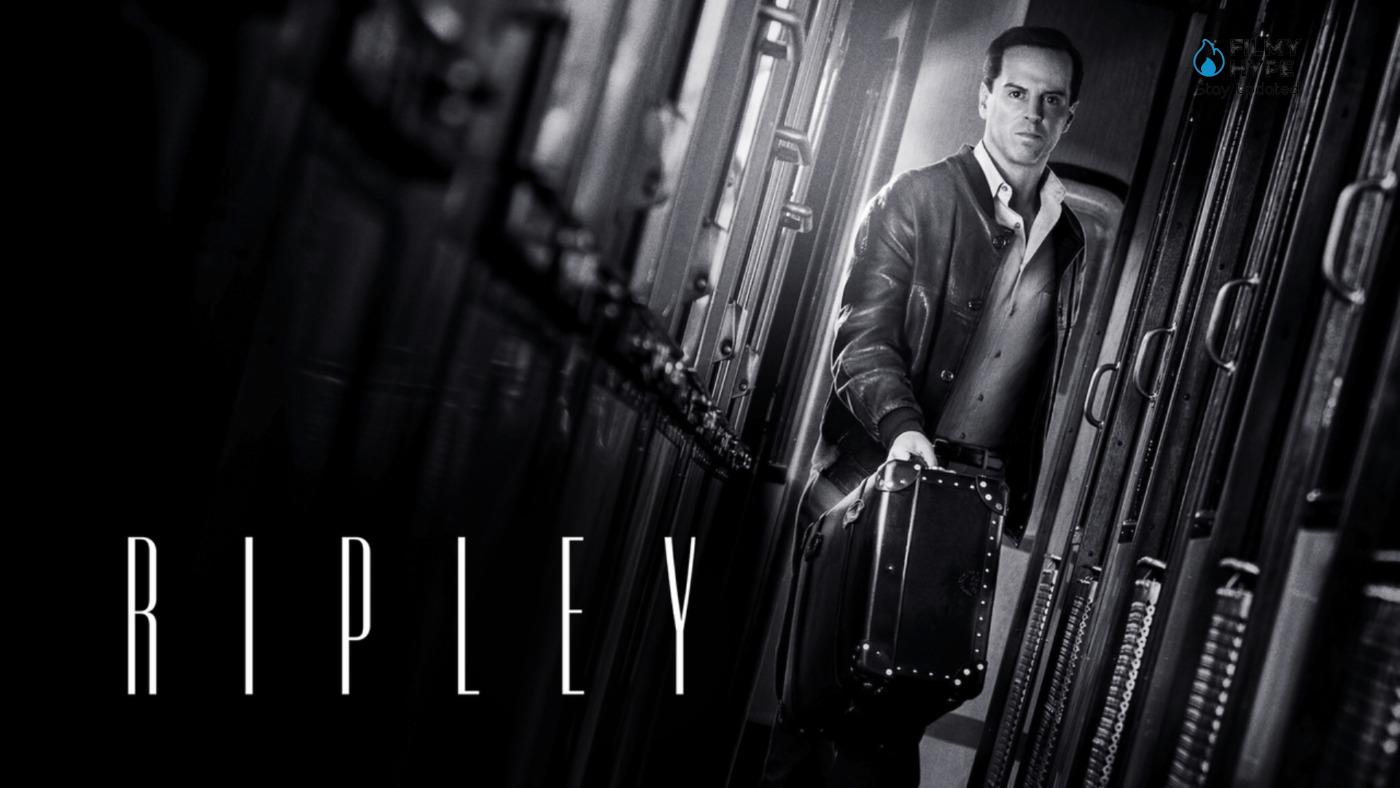
From one of the greatest masterpieces of noir literature of all time comes the eight-episode Netflix miniseries based on the famous novel The Talented Mr. Ripley by Patricia Highsmith. The fictional protagonist of the eclectic American writer, Tom Ripley, has already had more than one face on the big and small screen, and what faces: Alain Delon in 1960 in Full Sunlight, Dennis Hopper in The American Friend by Wim Wenders, the famous Matt Damon in The Talented Mr. Ripley by Anthony Minghella, the stainless John Malkovich in Ripley‘s Game by our Liliana Cavani, and finally Barry Pepper in a not very successful 2005 television film, Ripley Under Ground. A disturbing Matt Damon took the role of the fascinating Delon to transform it into something that left a mark in the collective memory, a palpable discomfort, so much so that it was almost intolerable. And for this reason, he succeeded perfectly in his intent.
Ripley Netflix Review: The Story Plot
Andrew Scott‘s Tom Ripley (Sherlock’s unforgettable archenemy Moriarty and His Dark Materials’ John Parry) is very different from Matt Damon’s. Affable, he doesn’t seem to be acting when he plays the orphaned, Princeton-graduate good guy. Although he is a con man, just like the other Tom, his more mature appearance makes him viscerally different and in a certain sense more difficult to identify as a disturbed character compared to the 1999 film. While traveling to Italy, from the stamps in his passport we discover that it is 1961. And instantly, even before we recognize the whole story, we understand whose body was dragged up the stairs.
We will, of course, get to that time. Not immediately, however: the 8 episodes of almost an hour each chosen to make this new transposition more faithful to the source novel are enriched with many drawn-out moments, with characters (such as Charles of Naples) who did not appear in the other transpositions because they are essentially useless for the story, and are also visually lengthy which instead increase the sense of unease that the miniseries, like the film, wants to convey. The scene of Tom’s first murder lasts a long time. Too long. But it conveys the sense of isolation of a character who turns out to be much luckier than intelligent.
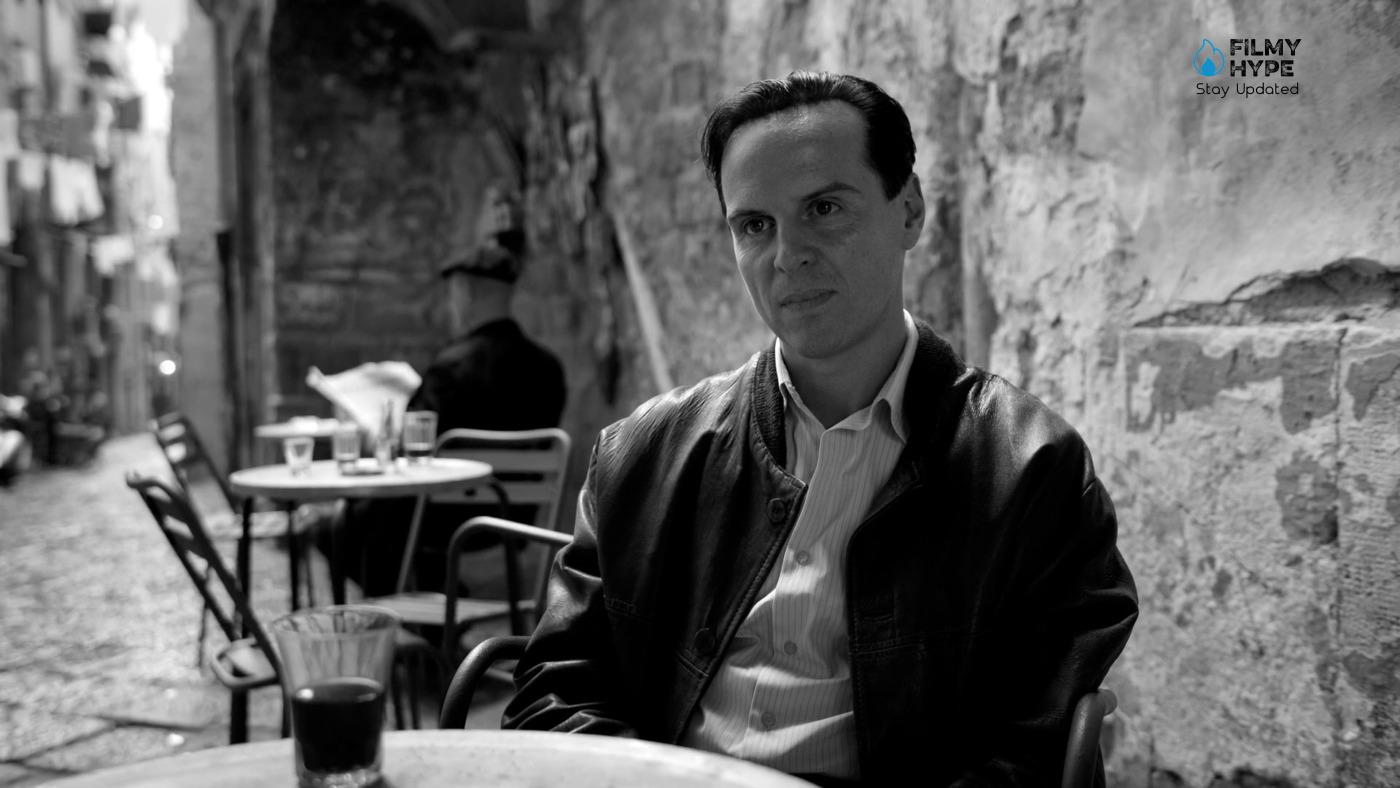
If Johnny Flynn‘s Dickie Greenleaf (Emma, The Score), here in the miniseries, quite clearly follows that of Jude Law in 1999, for the third character at the center of the narrative, Marge, it’s a completely different story. When Minghella’s film was released, Dakota Fanning was 5 years old. We met her as a child, in many roles on the small and big screen, and we find her today playing Marge, a historic role played by Gwyneth Paltrow. In the entire novel (and the film) there is only one character who immediately understands Tom Ripley‘s real nature, and it is Marge. A Marge who in the Netflix miniseries is even more credible than the one in the film, thanks to that poorly concealed annoyance and disgust that Dakota Fanning expresses decidedly better than Paltrow.
Ripley Netflix Review and Analysis
Before anything else, Ripley is the story (first in ink and then on the small screen) of a textbook sociopath profile. The entire complex narrative structure and character levels gravitate around the criminal thoughts and blood-soaked actions of the elusive and unpredictable Tom Ripley. A literary scoundrel who had such a great impact on readers all over the world starting from the mid-1950s that he gave life to a real editorial saga consisting of five volumes, perhaps less incisive than the masterpiece The Talented Mr. Ripley. Steven Zaillian, here also as showrunner (he had already been for TV behind the scenes of the excellent The Night Of by HBO, with Riz Ahmed and John Turturro) chooses to pay homage to the editorial revolution of the first novel of the noir series by setting up a television show with great impact, both visually and in terms of content.
Starting from the conscious choice to make each episode of the series cloaked in a funereal black and white, curated by the director of photography Robert Elswit (regular of Paul Thomas Anderson and Oscar winner for There Will Be Blood) and which frames the (mis)adventures of Tom Ripley in Europe, crystallizing them in a sick and feverish tale of identification with others, of crime and murder. Against the monumental and (only apparently) postcard-like backdrop of a “dolce vita” Italy. In Ripley, as in the source novel, there is a lot, a lot of Italy. That of the early 60s, of the economic boom, of the prototypical well-being of Western society about fifteen years after the rubble of the Second World War of the Bel Paese, which was recovering, and which was hosting more and more tourists and foreign visitors in its places more beautiful and evocative.
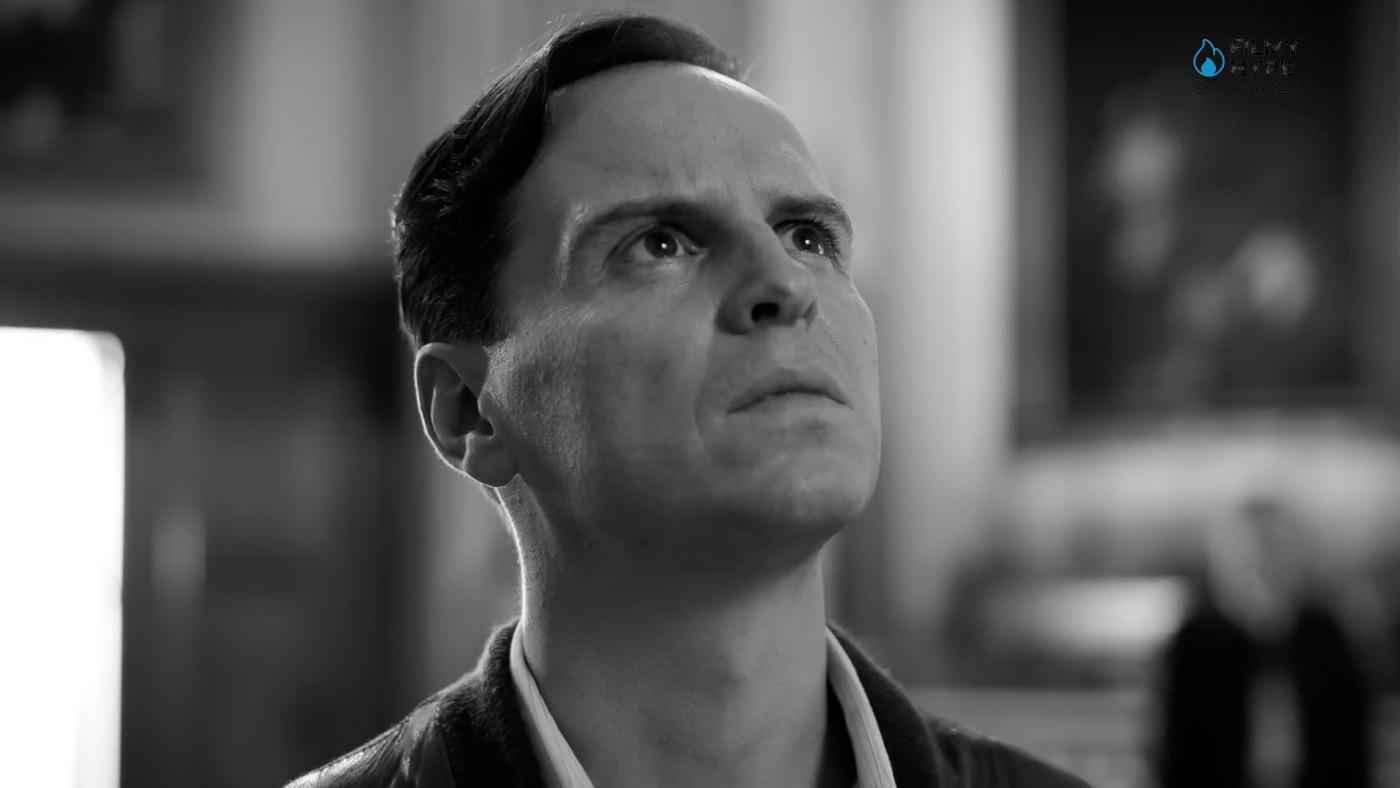
A model of “Dolce Vita” professed somewhat grotesquely by Federico Fellini in his 1960 masterpiece and which was attracting droves of curious people from Great Britain and the United States of America. The narrative path that Tom Ripley follows (but also part of the corollary characters that revolve around him) follows the beaten paths of the new international tourism since the mid-1950s, building an unprecedented noir story with a revolutionary globe flavor around the criminal sociopath-trotting. From the scenic wonders of Atrani on the Amalfi Coast to the imperial ruins of a dark and nocturnal Rome passing through the Arabian charm of Sicilian Palermo up to the immortal and aquatic beauty of Venice, Tom Ripley‘s escape has all the flavor of a journey only superficially “from postcard”. Although the artistic choice to bring Highsmith’s characters to the small screen by opting for a perennial black and white can be pointed out as a pure visual quirk, it instead contributes to emphasizing (literally) the lights and shadows of a more unique than rare criminal profile.
A profile created for TV by a consummate screenwriter who has already been able to deal with difficult adaptations in the past, and by a main actor in Andrew Scott who admirably manages to give back to even the most neophyte spectator all the dangerous unpredictability of Tom Ripley, even in a just a look, a single movement of the eyes, the head, the mouth. For these reasons, all things considered, Netflix’s Ripley particularly convinced and entertained us. Because it is a curious object for the small screen which, despite debuting in the catalog of a platform of often median and “algorithmic” content, takes its narrative pace with patience and love towards Patricia Highsmith’s masterpiece, rowing in a stubborn and opposite direction compared to the production contemporary of television series often cooked and eaten.
Productions perhaps even of high quality, yet at the same time devoid of challenges and stimuli towards today’s spectator of legal streaming, who is increasingly lazy and unaccustomed to the care and healthy slowness typical of literary material. Steven Zaillian’s Ripley, among other things, teaches how contemporary platforms have progressively distanced the public of users all over the world from the “other” fruition of the literature of the present and the past, replacing the serial assimilation of the universal tale with that intrinsically phlegmatic and patient of a good book. We’re sure Patricia Highsmith would have liked Zaillian’s approach to her incomparable psychological neo-noir.
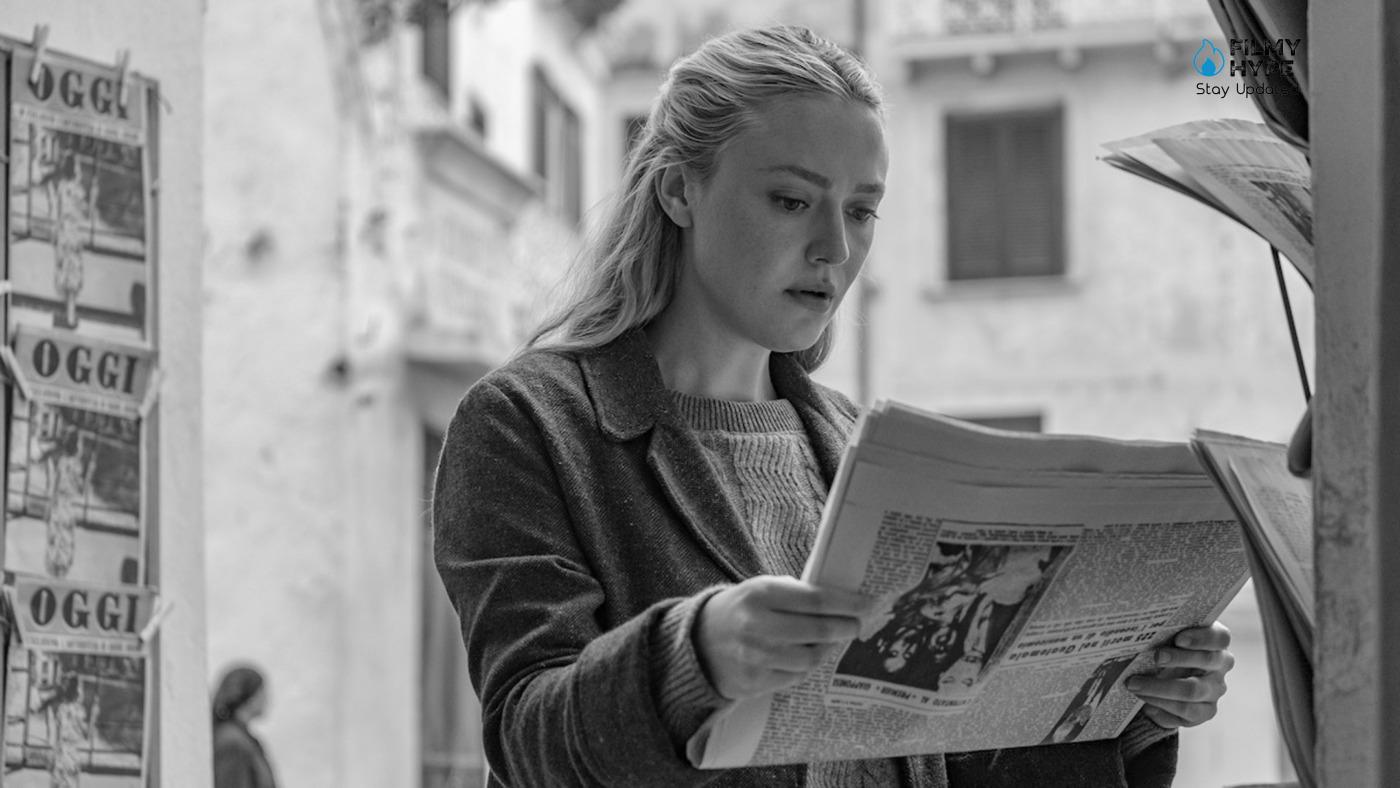
The series builds on the never overt, yet ever-present ideas of personal inadequacy and failure with several terrifying visual cues that point to the damaging effects of a miserable and lonely existence. In the darkest moments, when everything seems to be coming to an end for the conman, the latter’s corrosive greed turns into something much darker. An escalation of deception and lies that also comes in a sort of cat-and-mouse game between Ripley and the Italian inspector Pietro Ravini played by Maurizio Lombardi. We see Ripley running between various beautiful Italian locations including Naples, Venice, and Rome, escaping with cunning and some strokes of luck and coincidences that keep the viewer on the edge. Zaillian’s writing is so sharp and acute that numerous moments, nothing short of perfect, cause a sense of oppression as you watch the noose of consequences tighten ever tighter around the protagonist’s neck. The second half of Ripley is a mixture of anxiety and tension that does not subside until his disturbing conclusion.
The characterization of the protagonist, then, is nothing short of masterful. The impostor syndrome and the sense of self-fraud are omnipresent in him and can be observed even in microscopic moments and potentially of little sense for the story. But it is precisely the latter that allows us to construct in detail the complex and delicate psyche of a restless and damned character. Zaillian delves into the psychological depths of identity theft on a level that goes far beyond simple deception. Ripley‘s is a deep but distorted desire to escape from herself and transform into someone else, perhaps more respected and with a true status quo. The series, therefore, asks and shows the viewer to what extent an anguished life is so full of lies and deceptions that it can go to the point of folding in on itself, fragmenting and losing the sense of reality. And this is precisely where Scott’s magnificent and complex performance comes into play.
From a visual point of view, the Oscar winner Robert Elswit, here in the role of the director of photography, has made a real miracle. Choosing black and white for such a product is quite daring, but what emerges is a symposium of elegant images, rich in detail and incredibly sharp. The camera is often held at a distance, giving us wide shots of rooms with high ceilings, which create a sense of infinite space. Then, in the blink of an eye, the shots focus on a close-up of a hand, a window, an ashtray, a glass of wine, or a painting. The final result is halfway between a noir and a dark Hitchcock thriller, especially when the viewer feels the sensation of being complicit in what he is seeing. Ripley succeeds in the singular and unusual trick of empathy, making a sociopath briefly sympathize as he silently and casually traces all the reasons and disappointments that led him to such a life. He does this through the use of narrative and visual metaphors, such as the numerous references to Caravaggio’s most gruesome paintings to accentuate the horror, shame, and violence.
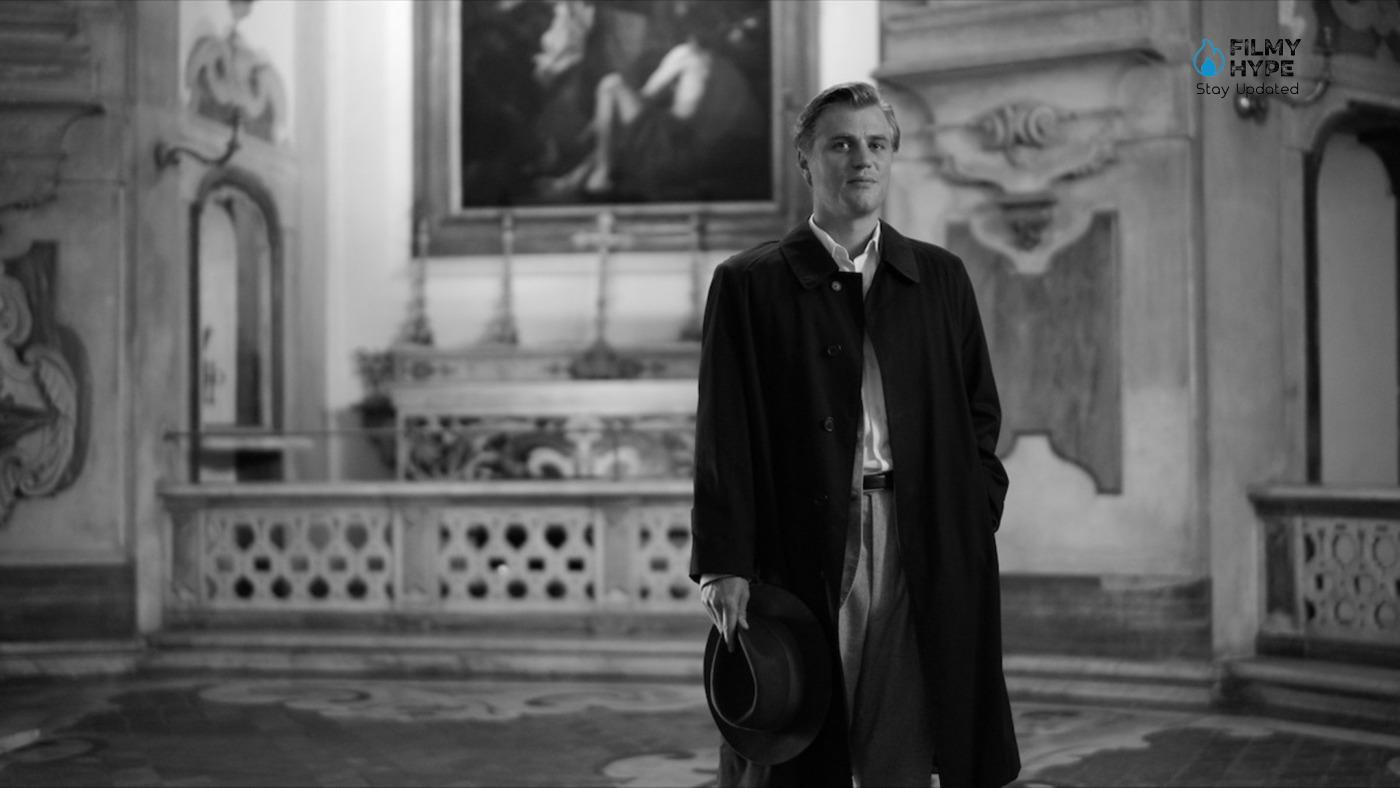
Everything is enriched by simply exceptional settings, costumes, and music. In conclusion, Ripley is an extraordinary work, one of those that alone justifies a Netflix subscription. Black and white might scare many viewers, but it makes everything more engaging as it allows the viewer to better immerse themselves in the world and psyche of the protagonist and the other characters. The story follows the aforementioned Highsmith novel perfectly, but the result seems unbalanced as if the screenwriter wanted to say much more but couldn’t do it due to timing issues. The hope is that it isn’t limited to being a miniseries, but that it can return with new seasons linked to the other books. These are the productions that deserve to go forward.
Ripley Netflix Review: The Last Words
Ripley, from a visual point of view, is one of the best original series that Netflix has in its catalog. From a story point of view, it could give much more by taking inspiration from Highsmith’s other novels. Steven Zaillian has created a sublime product from every point of view, showing the whole world that he is one of the most talented artists there is. The icing on the cake is Andrew Scott’s splendid performance. Steven Zaillian’s miniseries based on Patricia Highsmith’s first novel dedicated to Tom Ripley surprises and satisfies all those who have long been looking for a faithful and fascinating adaptation of the literary masterpiece of American noir. Cloaked in a sinister and expressionist black and white, Ripley is supported by a titanic and multifaceted Andrew Scott.







